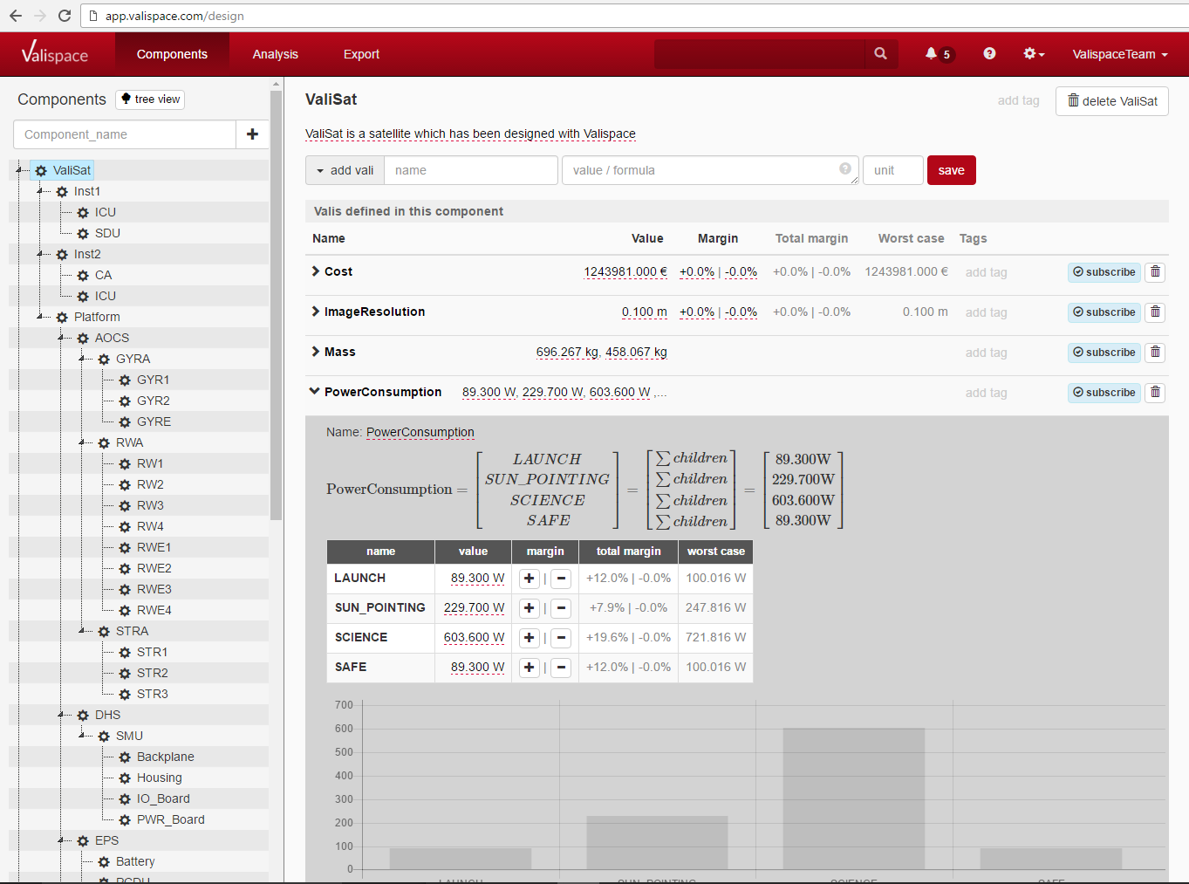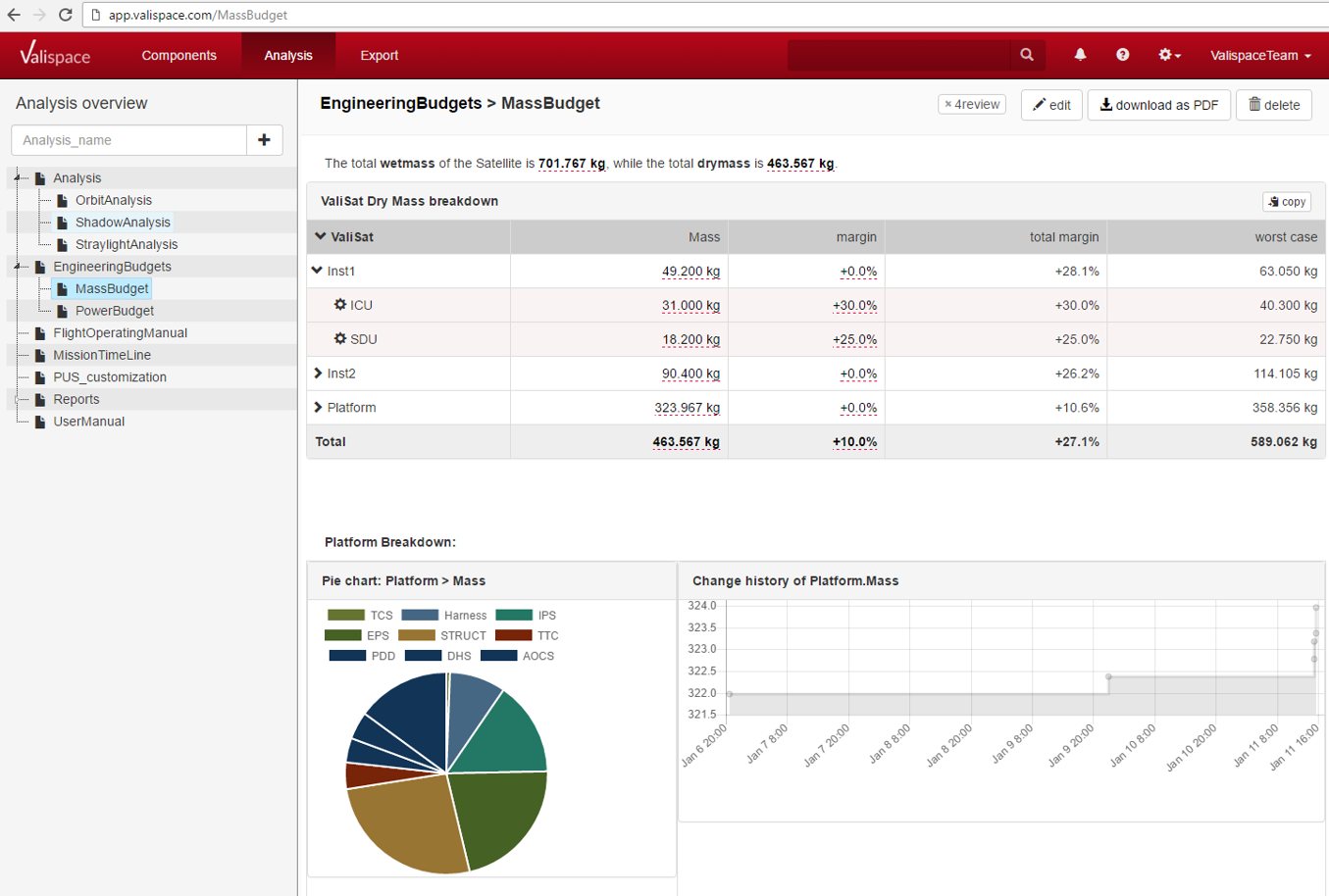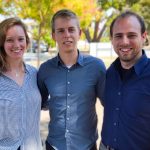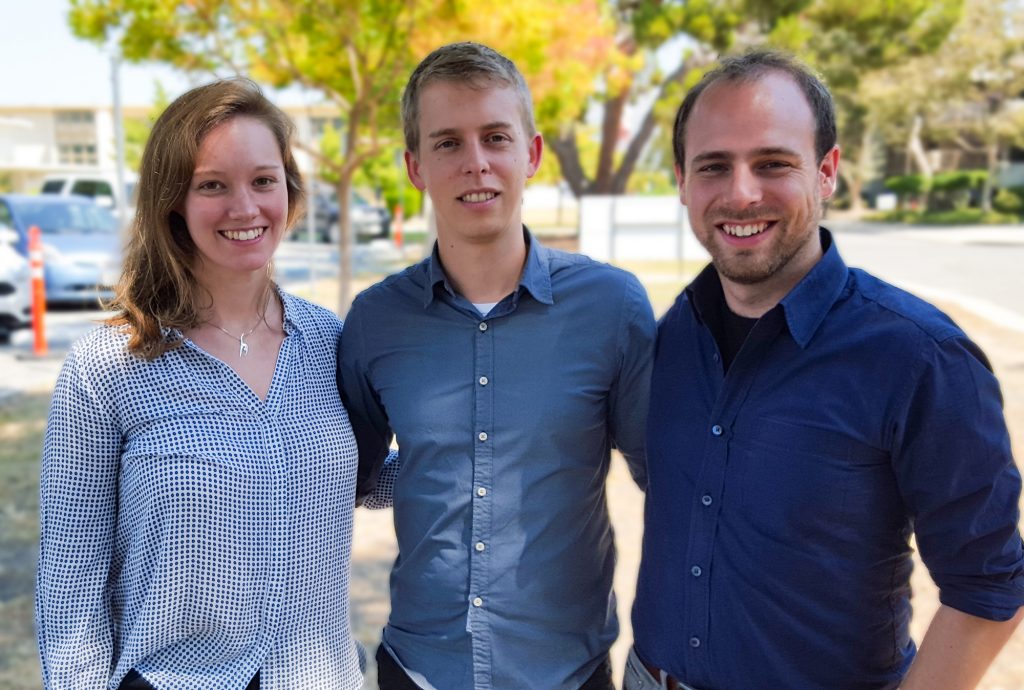Founded out of Startup Weekend Space: Bremen in 2015, Valispace has continued to develop its business idea towards a latest seed round of €1 million from High-Tech Gründerfonds.
Spaceoneers spoke to Co-Founder of Valispace, Simon Vanden Bussche about its browser-based software, which aims to make the laborious tasks of data documentation more efficient and cost-effective, enabling engineers to focus instead on driving further innovation.
How did Valispace come about?
A group of us met at Startup Weekend: Space in Bremen in 2015. Marco, our CEO and co-founder, pitched the original idea, which formed out of experiencing the same problems we all faced in our jobs – the daily pain of having to work with data spread across different e-mails and Excel files. We all had the feeling that something was possible to simplify this. We felt that somehow we would find a solution.
Tell us about your software solution
We describe our solution as data-driven engineering. It is about handling data and knowledge in a good way. We have so much data and many different numbers in individual files and people’s heads. In the best case maybe the data is in some CAD software. We want to change this because it’s needed.
If you look at what some of the companies in space are doing, they are disrupting the industry completely. At least for a company like SpaceX, a big part of that is because they are vertically integrated. The main advantage of being vertically integrated is all the knowledge is in one company, so they are much more efficient. Much of it has to do with how you handle data in an efficient way.
A traditional element of space satellite development is concurrent design, where many different companies work on different segments. We’re effectively trying to bring all that together in one solution. Save the back and forth of files, we instead put this all in one browser-based system. It simplifies the process so fellow engineers can work with data in a more efficient way.

How did you go from StartupWeekend Space to become a fully-fledged company?
There were several stages. In the beginning we had to set up a very simple MVP/prototype and then start talking to people. We had to find out if this would be an actual thing, if people would be willing to pay for it, so we spoke to some potential companies. Even though it was quite simple, our prototype was already good enough for them to be interested in the first instance. That was mostly the first year, involving a lot of bootstrapping to get us going.
So what did you present at the Startup Weekend?
We had only two days, so we presented a quick mock-up, demo and a business case basically. We had to go and really think about what is a solution to this. Among ourselves we were all still working full-time in our companies. We had some pilots and some tests, then after that we knew where we had to improve. After one year and a half we got some initial seed funding, mostly friends, family and fans money. With that we were able to develop more advanced features to develop it and start selling it as a real product.
How did you approach your first customers?
The advantage as founders is that we are already in the space industry. We usually go to conferences and we talk to people, so we explained the problem we can solve. It’s not always an obvious sell that you need software to do this. We had to explain this hidden problem is costing them a lot of money, people using all their individual files and how that we are a good solution.
How do you stay relevant and up-to-date?
We have three full-time developers now (and are looking for more, have a look at angel.co/valispace). The way we are competing is with good products that people like. The advantage is that we as founders have experienced the problem ourselves, so we have a pretty good idea of what we need to develop and how it must work. That’s usually very hard for another company to find out.

How do you stay motivated?
In the last half a year, it’s not been so hard as we have customers and people working for us. Before that it was more difficult because we had to build something from nothing, managing a day job and developing this on the side and stay convinced what you have developed is worth something. When you experience problems everyday and you realise your software can help to solve your own problems it can help in a big way.
Where does the name Valispace come from?
It has a bit of a history. ‘Vali’, as we discovered on the Startup Weekend, is the Norse god for revenge. We like to see it as a revenge on Excel and e-mails.
What advice would you give to those starting their own startup?
The advice I’d give is to solve a problem rather than go out and look for an idea. The best ideas are just solving pains of people. There are a lot of ways that everyday things can be done better but it’s hard to understand how and why it should be better if you don’t experience the pain yourself. So it is important to talk to people. You should find a real problem that people have that is obvious to them, even if it’s not immediately obvious to investors.
The announcement of Valispace securing €1 million seed investment from HTGF can be found here.

